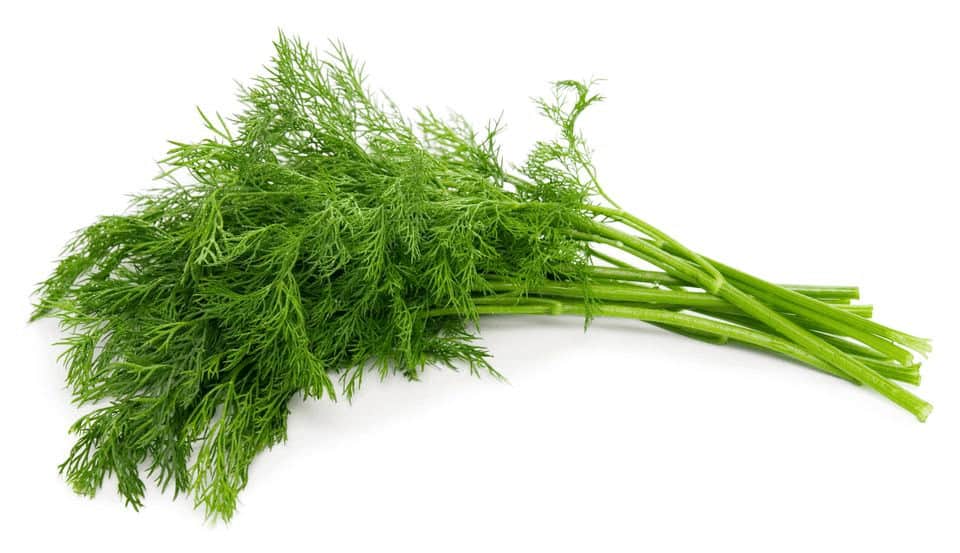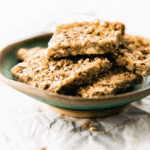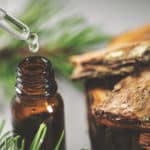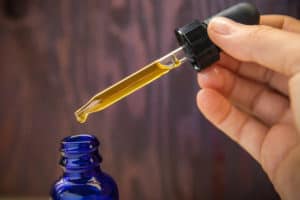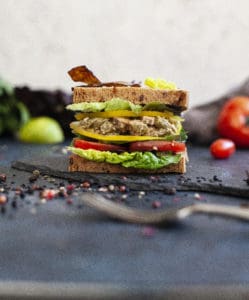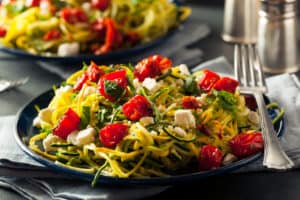What Is Dill?
Dill, Latin name Anethum graveolens, is an herb from the same family as celery and angelica. It’s similar in appearance to fennel, thanks to its feathery, delicate leaves. The leaves are aromatic and have a unique aroma and flavor with many culinary applications.
You may see dill referred to as:
- Dill Weed
- Dillweed (also an insult though, so careful how you use this one!)
- Kapor
- Endro
- Crown dill
- Kondrill
Dill is an annual, which means it only grows for one full season of flowering and going to seed. These seeds can then be planted to grow a new crop next year. It’s easy to grow even in a small garden or on a windowsill. Dill is widely available, fresh, and dried.
Health Benefits of Dill
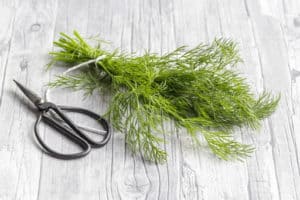
There is evidence of dill being used as medicine going back to 3000BC. Here are just some of the historical benefits of dill:
- Soothes colic in babies
- Helps with upset stomachs
- Used as a diuretic (increases the production of urine)
- Reduces flatulence
- Helps with menstrual cramps
- Chewing the seeds freshens the breath
- Dill was also used to protect against negative magic
One of the most well-known dill benefits is as a digestive aid. This is thanks to carminative and stomachic properties, which means it reduces the build-up of digestive gases and improves the function of the stomach, possibly stimulating the appetite.
Does Dill Actually Work as a Medicine?
As with many herbs considered as “alternative” or “complementary” medicine, research into the medicinal benefits of dill is limited. To understand the benefits of dill, it helps to look at the chemical constituents, which include:
- Limonene
- Carvone
- Anethofuran
- Vicenin
- Kaempferol
Limonene
Limonene is a kind of terpene. Terpenes are chemicals that control the aroma and flavor of plants, and many have health benefits for humans. Limonene is thought to possess anti-inflammatory properties, which could explain why dill helps with stomach aches. Limonene is also an antioxidant and may reduce the risk of heart disease.
Carvone
Carvone is another terpene, and as well as having antifungal properties widely used in agriculture, it may work as a relaxant and a digestive stimulant.
Vicenin
Vicenin may affect the body’s blood sugar levels, and research has been done to understand if this flavonoid (a type of chemical found in plants) could be useful in the fight against diabetes.
Kaempferol
Another flavonoid, kaempferol, may have an anti-viral and anti-bacterial effect, plus it may have a role to play in reducing the risk of cardiovascular disease.
How to Use Dill
Fresh dill is always better than dried dill, as when herbs are dried, they lose some of their potency. Dried dill is still potent as an herb, though. Depending on what type of stores you have access to in your local area, it may be easier to buy a pack of dried dill herb than to find fresh leaves. For culinary purposes, fresh dill leaves have a superior flavor, too.
Dill tea is a simple remedy for indigestion and super easy to make. Simply steep fresh or dried dill in hot water for five to ten minutes, strain, and drink.
Dill can also be eaten in food, the easiest way to gain its benefits.
Using Dill in Food
Dill is a common ingredient in many dishes from around the world, although it’s probably best known in Scandinavian cuisine. Dill seasoning is used for:
- Gravlax, a Nordic dish of salmon and fennel
- Dill vinegar
- Seasoning in bread or crackers
- Dill pickles- small cucumbers pickles in dill vinegar
Dill pickles have been around since at least 1640! Joseph Cooper, the royal cook for British King Charles the First, wrote about how to make them way back in the 17th century. He recommended using the freshest top leaves, which is true as they have the most flavor.
The dill spice flavor is reminiscent of aniseed or fennel, but not quite like either. It has a somewhat more savory taste than fennel, making it popular in fish dishes.
Easy Dill Recipes
- Chopped dill mixed into natural yogurt for a cooling dip
- Sprinkle dill on any fresh fish, particularly salmon
- Chop and toss dill with lettuce and cucumber for a tasty salad
- Throw into the water at the last minute when boiling veggies. When you drain the veggies, the dill should stick and give them a bit of extra flavor. It goes really well with asparagus.
Dill Side Effects
Some people may be allergic to dill. If you are allergic to any other plants in the same family as dill, such as caraway, carrot, or celery, be aware that this could be a risk.
Dill is generally considered a safe remedy, but if you are taking regular medication, always check with a doctor before taking any plants in medicinal quantities. Certain psychiatric drugs may be affected by dill.
Dill may not be safe during pregnancy in high amounts. Speak to a doctor before increasing your intake of dill if you are pregnant or breastfeeding.
Adding dill into your diet as an herb or vegetable should not cause any ill effects. Enjoy the pleasant flavor of this feathery herb, and enjoy the calming and soothing benefits it could bring into your life.
Takeaway
Dill has been used as a culinary herb and medicine for at least 5000 years. It’s easy to grow and easy to use. Dill leaves can be used fresh or dried for a variety of ailments and to make food taste great.
